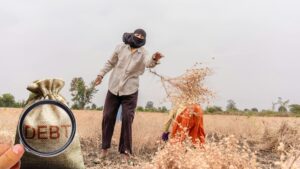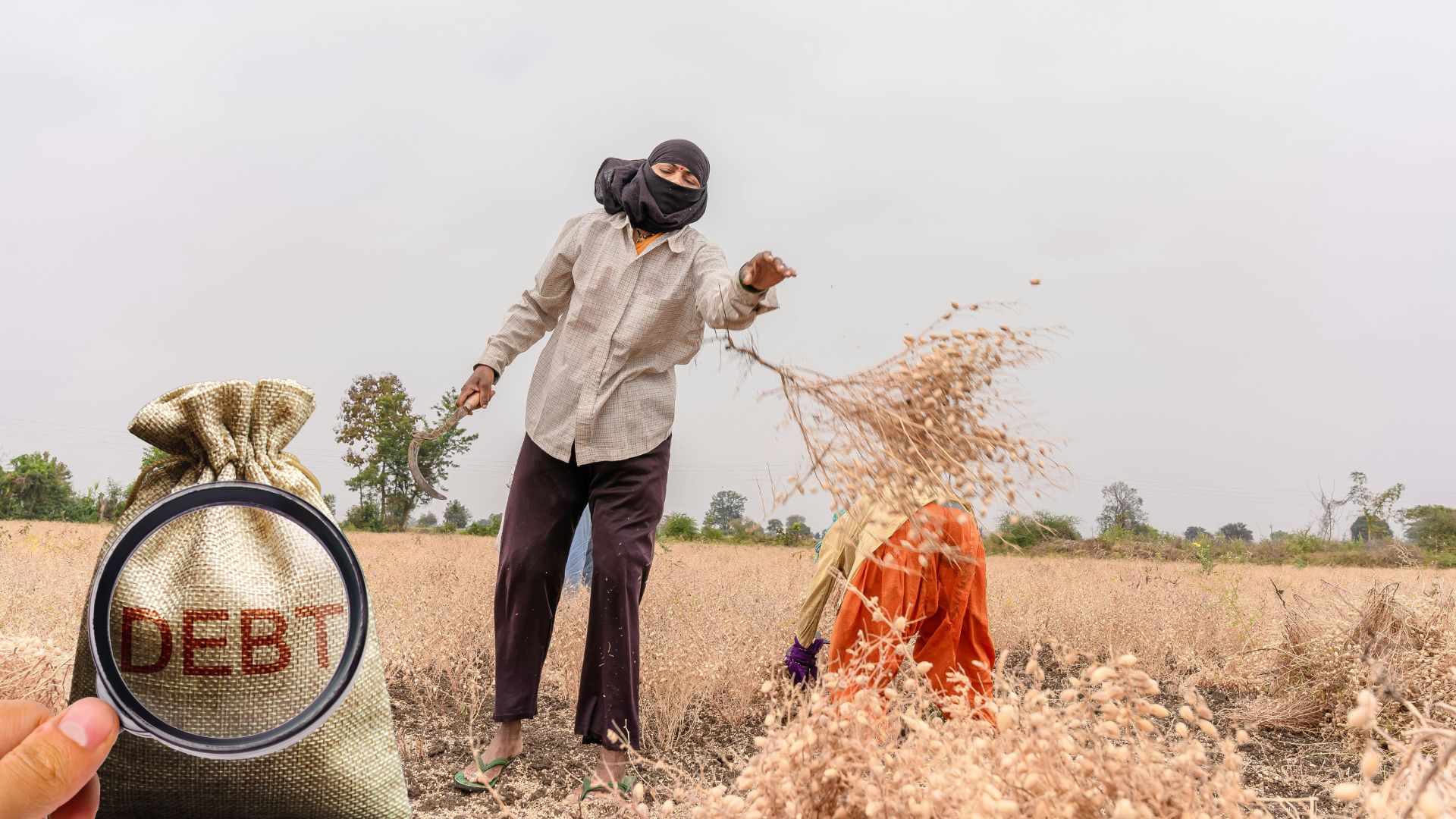 In 2017, Maharashtra implemented an agriculture debt relief scheme that waived debt amounting to ₹18,762 crore. This was followed by another debt relief program in 2019 for an amount of ₹20,497 crore. In the 2024 elections, almost all major political parties included an agriculture debt relief scheme in their manifestos, promising implementation if they came to power.
In 2017, Maharashtra implemented an agriculture debt relief scheme that waived debt amounting to ₹18,762 crore. This was followed by another debt relief program in 2019 for an amount of ₹20,497 crore. In the 2024 elections, almost all major political parties included an agriculture debt relief scheme in their manifestos, promising implementation if they came to power.
As of March 2025, the total agriculture debt in Maharashtra stands at ₹1,77,200 crore, with crop loans amounting to ₹67,058 crore. This data is from the 168th Meeting Agenda and Background Papers of the State Level Bankers’ Committee (SLBC). Given these circumstances, the implementation of a new debt relief program has become crucial, especially following the devastation caused by excessive rains in various parts of the state, which has left farmers in an unimaginable plight.
Data presented to the 18th Lok Sabha (Session IV, Unstarred Question 2379, dated August 4, 2025) shows that Public Sector Banks have written off dues amounting to ₹5,06,981 crore in last 5 years. Of this, the write-off for agriculture was ₹67,084 crore (13.23%), while the write-off for large industries and businesses was ₹3,18,329 crore (62.78%).
Additionally, information provided to the Rajya Sabha (Session 268, Unstarred Question 2958, dated August 19, 2025) indicates that the write-off for large industry and services over five years was ₹3,18,324 crore, while major tax incentives for corporate taxpayers during the same period amounted to ₹4,53,329 crore. Against this backdrop, any agriculture debt waived off would be insignificant compared to corporate debt relief.
If this debt relief is implemented, the state government must provide funds to the banks upfront. In cases involving corporate debts, banks often grant waivers, known as “haircuts,” ranging from 35% to as high as 95%, with the average sacrifice around 65% (referencing the Insolvency and Bankruptcy Board Newsletter). Following a similar approach, the state government should bargain with the bankers to waive agriculture debt, potentially amounting to ₹1 lakh crore, for an upfront payment of ₹35,000 crore. This would allow for the total waiver of both crop and term loans for small and marginal farmers.
Initially, crop loans should be waived, and fresh crop loans should be sanctioned with a 20% component for consumption loans. For term loans, a special moratorium of about two years should be granted, with the interest application stopped immediately and borne by the state government.
Further refinement of this proposal, based on farming status in different areas, could significantly lower the amount of the waiver. All such calculations can be performed once the principle is agreed upon. Implementation must follow within a stipulated timeline.
Devidas Tuljapurkar is the joint secretary of the All India Bank Employees Association and a former director of the Bank of Maharashtra.
Centre for Financial Accountability is now on Telegram and WhatsApp. Click here to join our Telegram channel and click here to join our WhatsApp channeland stay tuned to the latest updates and insights on the economy and finance.

